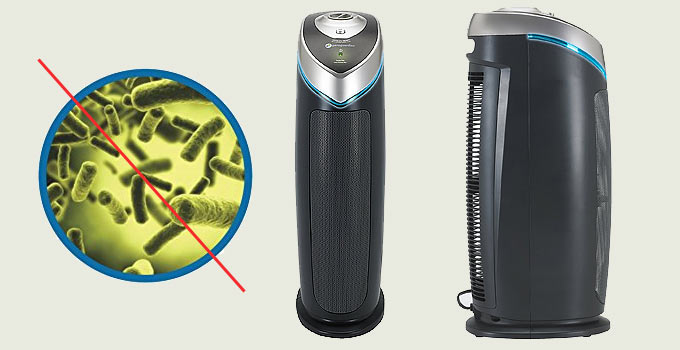What is a HEPA Air Filter and Which is Best?

You might be wondering, “What is considered HEPA and what is ‘good enough’?”
I was recently asked that question regarding HEPA air filter for the home.
A HEPA air filter is one that will filter out very tiny particles and is particularly recommended for allergy sufferers.
I like HEPA because of the fact that less particulates enter the lungs while breathing!
How many of you have noticed this at one time or another in your home:
You’re sitting there and the sunlight is shining ‘just right’ through the window and you can see all that dust and particulate matter floating in the air! A moment later when the sun angle changes, you can’t even see it. But you know it’s still there!
A HEPA air filter will remove that stuff…
What does HEPA mean?
High Efficiency Particulate Air. It’s a standard for a type of air filter.
To qualify as HEPA by US government standards an air filter must remove (from the air that passes through) 99.97% of particles that have a size of 0.3 µm.
source: American Society of Mechanical Engineers (ASME AG-1a–2004)
0.3 µm, that’s really small!
1.0 µm is a micron, or micrometer. One millionth of a meter.
Particle Sizes:
0.2 – 3 μm : burning wood
1 – 5 μm : Anthrax
1 – 10 μm : Bacterium (typical)
0.7 – 90 μm : Asbestos
3 – 8 μm : Spider web silk strand
3 – 12 μm : Mold
10 – 100 : Human Sneeze
5 – 200 μm : Hair
70 – 180 μm : Paper thickness
100 – 300 μm : Dust Mites
10 – 1000 μm : Pollen
So imagine how small 0.3 µm is!
How Does HEPA Air Filter Work?
Keeping it simple:
A HEPA air filter is a mat of randomly arranged fibers. These fibers are typically made up of fiberglass and their diameters range between 0.5 and 2.0 micrometers.
Actually the air space between HEPA filter fibers is typically greater than 0.3 μm. However a HEPA filter acts like a sieve where particles become trapped as they stick to a fiber.
Are all HEPA air filters the same?
Short answer, no they’re not. Because some companies use marketing terms that may mislead.
Products that claim to be “HEPA-type”, “HEPA-like”, “HEPA-style” or “99% HEPA” may not or likely do not satisfy today’s HEPA requirements. They may not have been tested in independent laboratories.
Some of these filters may be sub-par quality while others might be reasonably close to HEPA filtration. Still others may fall significantly short, making them truly inferior.
Companies now have begun using a marketing term known as “True HEPA” to give consumers assurance that their air filters are indeed certified to meet the HEPA standard.
Today, a HEPA filter rating is applicable to any highly efficient air filter that can attain the same filter efficiency performance standards as a minimum and is equivalent to the more recent National Institute for Occupational Safety and Health N100 rating for respirator filters.
Which HEPA air filter is the best?
I would reason that the best HEPA air filter will be one that is rated “True HEPA”. Or one that has been tested and proven to meet the standard.
There are lots of different HEPA air filters that all meet the standard, so they’re all the best in that regard. From there it becomes a matter of features, form factor, design, fan speeds, quiet levels, price, etc.. which are fairly subjective.
There are tabletop filters, room size air filters, whole house air filters, and filters for all sorts of things including your furnace or even your vacuum cleaner.
I will say that I have the following ‘True HEPA’ room air filter and it has been great for us:
That said, I do have several ‘Rowenta’ brand fans and they have been the best and quietest I’ve ever owned. They also make a quality True HEPA air filter for larger spaces. I don’t own this, but it sure looks like a good one…
Rowenta True HEPA (800 sqare-feet)
HEPA Air Filter for preparedness
Besides the every day benefits of having one or two for your home’s air quality, a HEPA air filter is good for preparedness.
Why? I can think of two good reasons (at least).
1. Alpha Radiation
2. Pandemic Outbreak
Alpha Radiation Particles
A HEPA filter will assist to filter out alpha radiation particles. A nuclear ‘accident’ could conceivably release alpha radiation (not to be confused with beta, gamma, or x-ray radiation). Alpha is large and tends to cling with dust particles. All of which could be filtered into a HEPA air filter. It’s largely what’s inside a ‘fallout cloud’.
Pandemic Outbreak
While virus may likely be smaller than the ability of HEPA, a HEPA air filter will catch bacterium and/or cough & sneeze particulate which may contain the virus. If someone in the home is sick, this may help reduce the likelihood of others getting sick from breathing in ‘the cloud’.
